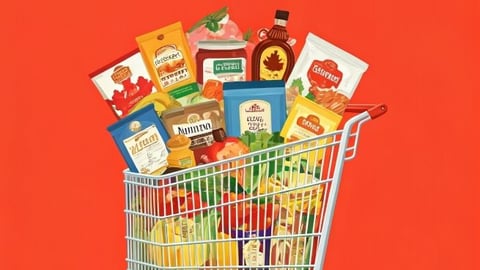The problem with Canadian marketing boards
For decades farmers have attempted to countervail the influence and power of oligopolies by setting up marketing boards to regulate milk, poultry, maple syrup, and wheat farming. During the last century it was a very natural and a logical thing to do.
The Canadian Wheat Board, supply management, and the most recent maple syrup cartel were designed to sell agricultural commodities throughout Canada and to the world. All were intended to protect farmers from overwhelming purchasers downstream and, most importantly, from market failures. In recent years, however, our marketing boards have shown signs of obsolescence.
These signs are putting some of our commodity groups in vulnerable states that are forcing them to consider desperate measures.
We actually have 120 marketing boards in this country. However, there are two sectors in particular that are experiencing catastrophic conditions right now: maple syrup and dairy.
Let’s start with maple syrup. Both Ontario and the United States are reporting a record harvest this year. This year’s “sap tsunami” would normally represent welcomed news for the industry. Millions of litres of maple syrup are ready to be sold throughout the world and producers are feeling enthusiastically opportunistic about this year’s crop.
Similarly, La Belle Province has experienced an abundant crop this year as the April weather was ideal for maple syrup production. Yet in Quebec, where a marketing board was set up a few years ago, the sentiment is quite different.
This year’s maple syrup harvest is expected to exceed 150 million pounds, which would break the old record by more than 30%. Normally these numbers would bring joy to the industry. Instead, many are worried that a significant surplus will end up on the black market, which would undoubtedly affect quota-produced syrup prices. The aim of this board is to artificially inflate prices at farmgate, no matter what happens. Given the current quota-based regime, excess inventories are problematic as it encourages many to sell outside the system.
The Federation responsible is currently trying to figure out ways to address the issue and monitor those going outside the cartel-esque scheme.
The situation in the dairy industry is even more critical. Somewhat similar to the maple syrup industry, farmers have quotas to produce milk, but are based on domestic demand. The other main difference with dairy is the excessive tariffs on imports as we essentially produce what we need. In recent years, however, consumers are purchasing dairy products such as butter and yogurt with a higher content of butterfat. Consumers are drinking less milk causing a shortage of butterfat in Canada. As a result, dairy processors are anxious to purchase butterfat to respond to a growing demand for certain products.
They are now importing over $200m worth a year of U.S. high-protein milk ingredients, also known as diafiltered milk. And it may get worse. One these processors is dairy producer-owned Agropur.
With the higher demand for butterfat farmgate prices have increased excessively in Canada compared to the rest of the world—in fact almost three times as high. Dairy processors have little or no chance to compete unless they have access to inexpensive ingredients.
Both scenarios are the results of a very narrow-minded view of world markets. Even though marketing boards will try to convince Canadians that they are adapting quickly to market swings, they are simply not. Measures are often taken in desperation. Marketing boards are simply not hardwired to deal with massive production condition changes. Worse, they are often unable to appreciate how modern heterogonous markets are becoming. Consumers are looking for a variety of benefits like organic, locally-grown and other value-added features.
Despite the wonderful research conducted by some universities farmers are still set in their ways. The new normal in agriculture compels farming to cope with systemic shifts generated by climate change, abrupt macro-economic shifts and market demand fluctuations. As such, marketing boards are slowly failing farmers and the Canadian public. As some farmer groups are continuing to play the hypocritical card of justifying the existence of some of these boards the world is changing and fast.
The appeal to use marketing boards in Canada has led to an acute myopic view of agricultural markets. As such, several commodity sectors are literally experiencing a crisis. Marketing boards have served the Canadian agricultural economy for decades, but many have passed their due dates. Each commodity deserves a different approach. A demand-chain management approach would warrant a distinctive approach between commodities. But it’s time to move on from a fear-charged paradigm to a more proactive posture on developing markets, anywhere in the world. In light of recent trade deals Canada has signed, this needs to happen quickly.




